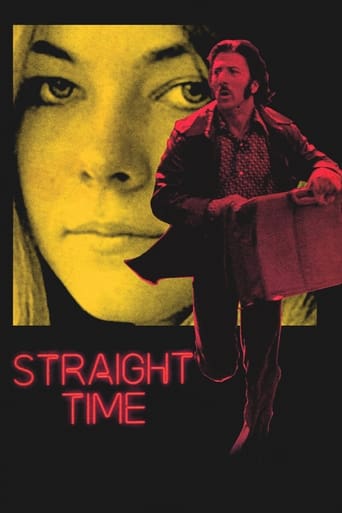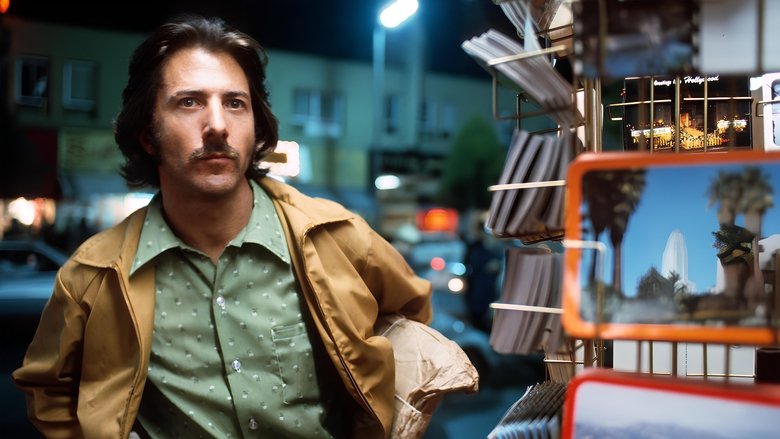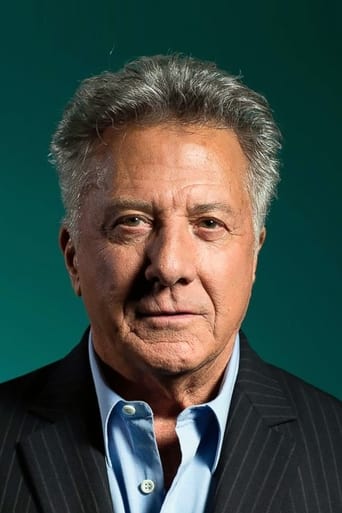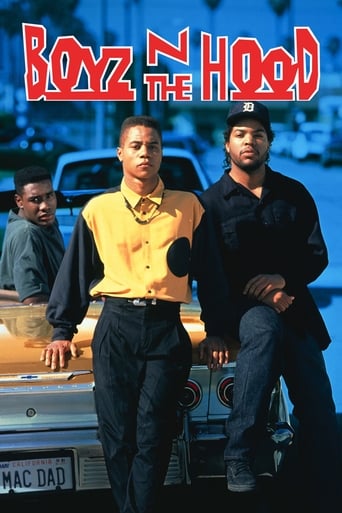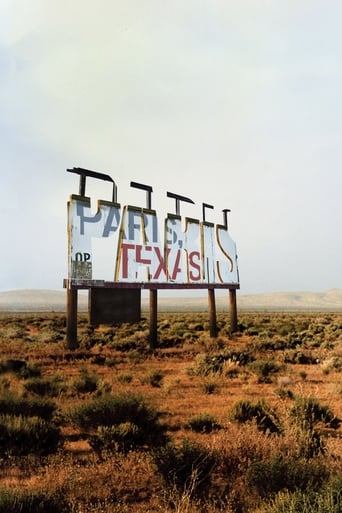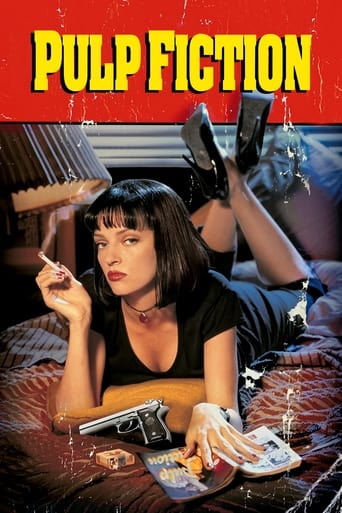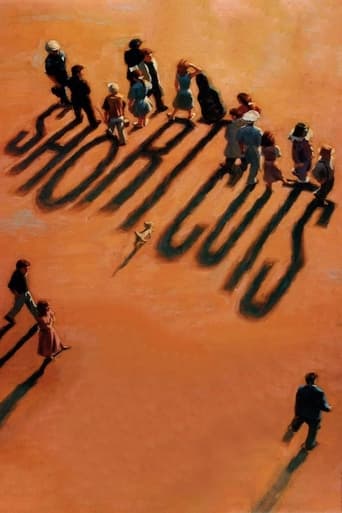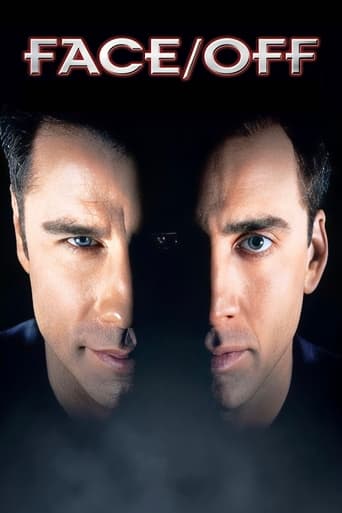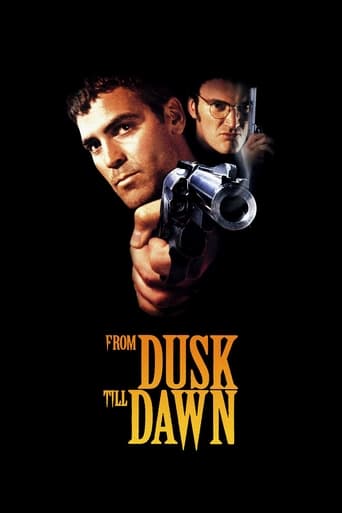Straight Time (1978)
After being released on parole, a burglar attempts to go straight, get a regular job, and just go by the rules. He soon finds himself back in jail at the hands of a power-hungry parole officer.
Watch Trailer
Cast


Similar titles
Reviews
As some have said here, this is a sleeper that should not be missed.Is it true "once a criminal always a criminal"? This cast certainly works hard to answer this question.Hoffman, Busey, Stanton, Russell, and Walsh all give great performances to a tight, well-written script.There is no fluff here, just a straight shooting story.The soundtrack is excellent as well.If you're reading this around the beginning of February, 2018, you can watch it for free on the TCM app on your portable device.
Very realistic crime movie, based on No Beast So Fierce, the first book by Eddie Bunker, whom you probably know as Mr Blue in Reservoir Dogs. Bunker was a career criminal with an impressive track record: he was San Quentin's youngest inmate ever and made it all the way to the FBI's most wanted list in the early seventies. During his last stay in prison he wrote No Beast So Fierce, about an ex-convict named Max Dembo, who has a hard time adjusting on the outside. According to Bunker, No Beast So Fierce is supposed to show that most ex-cons who go back to a life of crime don't choose to do so. They're forced by the system and the circumstances. Well, I haven't read the book, but in Straight Time the reason for Max Dembo's inevitable return to crime lies mostly in his character, not in the system. Sure, his parole officer (a superb M. Emmett Walsh) is a complete asshole. But who hasn't had an asshole for a boss? We take the abuse and move on. But not Max Dembo. He just can't. Too proud, too stubborn, too ill adjusted to civilian life. When Dembo attacks his parole officer and there is no way back for him, we see not only panic in his eyes but also relief. His attitude changes as well: while he was clearly uncomfortable trying to adjust to life outside, he is quite resolute and efficient as soon as he is back doing the things he does best, which is robbing banks. It's a great role for Hoffman who had Bunker and another ex-convict called John Carlen advise him throughout the production. That probably added to the realism of this great crime film. In most movies about bank robbers, the criminals are mostly outsiders by choice, with their own set of principles. Straight Time is no different. But unlike The Getaway or Charley Varrick, this one shows us the very tragic consequences of that life.
Although it was almost certainly not intended as such, this film is a virtual remake of the 1937 Fritz Lang classic "You Only Live Once". It was actually based on the novel "No Beast So Fierce" which was written by Edward Bunker, a career criminal who might just have known his subject matter. Bunker managed to break with his life of crime and died at the age of 71 after a successful media career. The subject – or perhaps that should be the victim – of this film, was never going to have such a happy ending.Max Dembo comes out of gaol, and like Eddie Taylor in "You Only Live Once", he makes a determined effort to go straight, even like Taylor finding himself a high quality but low maintenance love interest. And like Taylor he realises the world is a conspiracy against him, and that there will be no redemption, especially with the creep of a parole officer who is assigned his case. Though there is little humour in this film, this odious character gets a particularly fitting comeuppance.Like "You Only Live Twice" it too is a social document, and a realistic if pessimistic one with a similarly sad resolution. Alas, another thirty and more years on, nothing has changed.
Little seen late 70's Dustin Hoffman film which I was pleased to catch airing on TCM and which shows its star was more than up to the "challenge" of playing "street", a la the younger competition De Niro and Pacino in a tough urban tale of a small-time thief released back into society but who drifts back to crime with disastrous results.The film moves us deftly through the key relationships that Hoffman's Max Dembo character enters, which all inform the narrative, starting with his petty tyrannical parole officer M Emmet Walsh, strung-out driver/buddy Gary Busey, young female interest Thelma Russell and cut-from-the-same-cloth fellow hoodlum Harry Dean Stanton, none of whom really profit from the experience (Busey & Stanton in particular!) before he heads out on the run to L.A., all chance of a "normal" life blown to bits.Looking a little Latino with his handlebar moustache, I've rarely seen Hoffman act better than this and it's something of a revelation seeing him here on top of his game given how much he's mellowed into his avuncular old age in recent years. He captures the edginess and essential loneliness of his character, erupting into rage when pushed just too far but just about capable of tenderness with the hero-worshipping Russell. His return to old ways starts small but inevitably builds up to violence and murder as his life spirals out of control.The film readily captures the mundaneness of Hoffman's ill-fated attempts to fit back into society and these are contrasted well with the action set pieces. The four main supporting roles mentioned above are all excellently played, by Walsh, Busey, Russell and Stanton and there's no time in the film when you don't believe you're seeing real-life characters. What humour there is, is sparing and grim, (it's doubtful that pesky parole officer will be able to hold his head up again in public, for one thing) and there's also a fluid, sympathetic musical soundtrack too to maintain interest, with themes a little reminiscent at times of "Midnight Cowboy".I didn't quite accept however the phot-montage ending which seemed to indicate that Dembo always was the proverbial leopard unable to change his spots from youth, as with the right breaks, one has to hope in modern society that offenders released back into the community can be rehabilitated.As an indictment of the U.S. parole system of the time however, this gritty, uncompromising movie makes its point effectively and further confirms me in the belief that the genre of Hollywood 70's contemporary drama was a rich one indeed.

